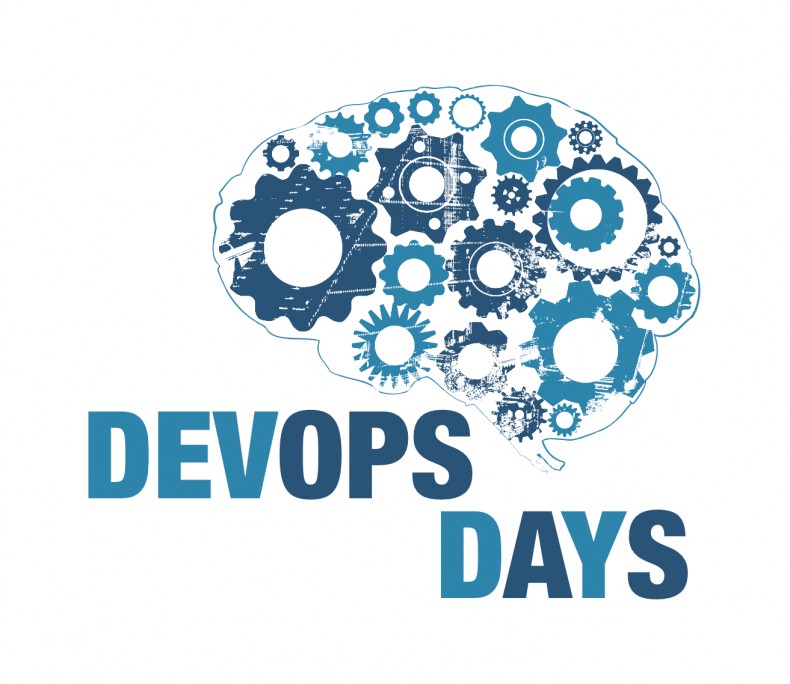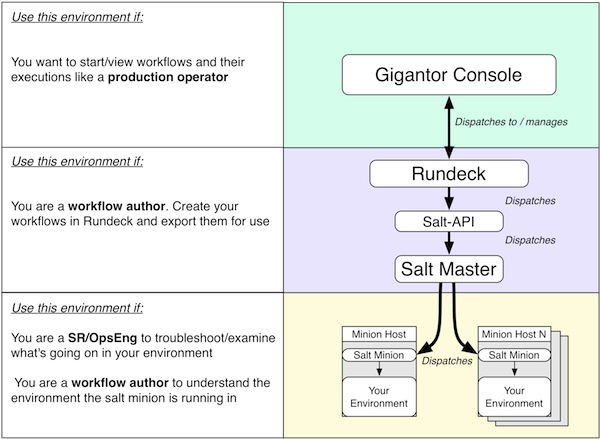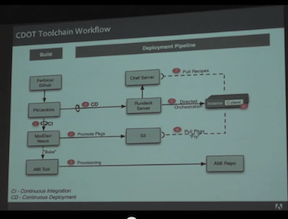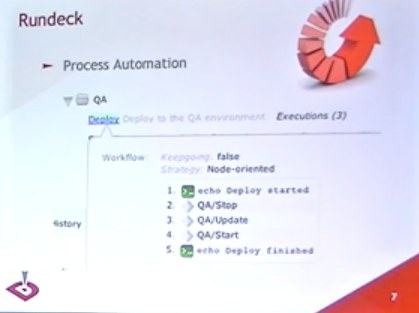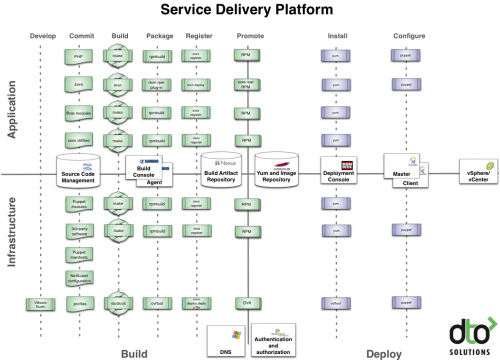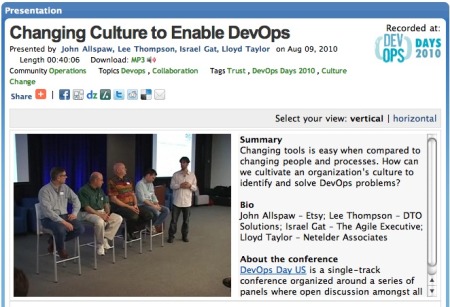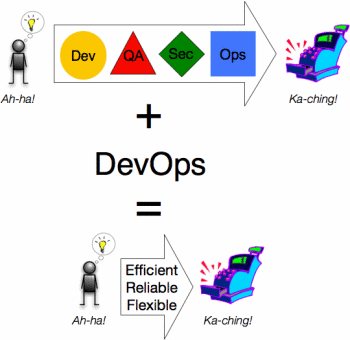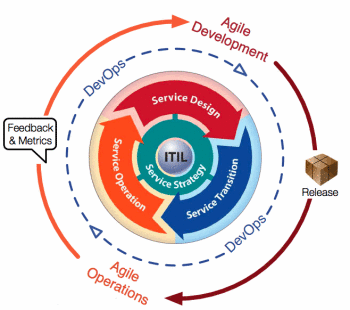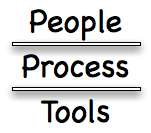DevOps is not a technology problem. DevOps is a business problem.
Damon Edwards /
Update: follow-up post about the competitive business advantage that DevOps enables.
Since Patrick Debois called for the first DevOps Days event and unleashed the term “DevOps” upon the world, there is no denying that DevOps has evolved into a global movement.
Of course, DevOps has its detractors. Negative opinions range from the misguided (“DevOps is a new name for a Sys Admin”) to the dismissive (“DevOps is just some crazy Devs trying to get rid of Ops” or “DevOps is just crazy some Ops trying to act like Devs so they will be better liked”) to the outright offended (whose arguments tend to defy logic).
I’ve spent the past nine months or so overcoming resistance to the DevOps movement in both public forums and inside client companies. During that time, I’ve begun to notice a common misconception that I think is fueling much of the negative initial reaction that some people have to DevOps ideas. I want to take a shot at clearing it up now:
DevOps is not a technology problem.
Technology plays a key part in enabling solutions to DevOps problems. However, DevOps itself is fundamentally a business problem.
What does the business have to do with DevOps?
The most fundamental business process in any company is getting an idea from inception to where it is making you money.
Within that business process there are all kinds of activity that needs to happen, some technology-driven and some human-driven. This is where all of the different functions of IT come into play. Developers, QA, Architecture, Release Engineering, Security, Operations, etc each do their part to fulfill that process.
But if you take away the context of the business process, what have you got? You’ve got a bunch of people and groups doing their own thing. You lose any real incentive to fight inefficiency, duplication of effort, conflicts, and disconnects between those groups. It’s every person for themselves, literally.
But you know what else happens if you remove the context of the business process? Your job eventually goes away. Enabling the business is why we get paychecks and why we get to spend our time doing what we do.
If there is no business to enable or we don’t do any business enabling, this all just turns into a hobby. And by definition, it’s pretty difficult to get paid for a hobby.
The whole point of DevOps is to enable your business to react to market forces as quickly, efficiently, and reliably as possible. Without the business, there is no other reason for us to be talking about DevOps problems, much less spending any time solving them.
Doesn’t this sound a lot like the goals of Agile?
If the goals of DevOps sound similar to the goals of Agile, it’s because they are. But Agile and DevOps are different things. You can be great at Agile Development but still have plenty of DevOps issues. On the flip side of that coin, you could do a great job removing many DevOps issues and not use Agile Development methodologies at all (although that is increasingly unlikely).
I like to describe Agile and DevOps as being related ideas, who share a common Lean ancestry, but work on different planes. While Agile deep dives into improving one major IT function (delivering software), DevOps works on improving the interaction and flow across IT functions (stretching the length of the entire development to operations lifecycle).
But I thought DevOps was all about cool tools?
Technology is the great enabler for making almost any business process more efficient, scalable, and reliable. However, we have to remember that on their own, tools are just tools.
It’s just as likely that you’ll use a new tool to reinforce bad habits and old broken processes as you will to improve your organization. It’s the desired effect on the business process you are supporting that dictates why and how a tool is best used.
When people are clear on what their DevOps problems are and what process improvements need to happen to remedy those DevOps problems, the tool discussion becomes rather straightforward (if not trivial).
Since the nascent DevOps movement is mostly made up of technologists, it’s easy to understand why there is such excitement to jump right into tooling discussions. But perhaps we need to do more to make sure that everyone is up to speed on why the tools are needed and what the desired business process improvements are before diving into our standard “Puppet vs. Chef” or “Files Centric vs. Package Centric” arguments.
If DevOps is about a business process then why is it called “DevOps”?
In my opinion, one fault of the early DevOps conversations is that it wasn’t immediately clear just how big the scope of this problem truly is. Now that we have a year of perspective behind us, it turns out that we have been attacking one of the biggest problems in all of business: How to enable a business to react to market forces as quickly as possible.
But alas, the conversation had to start somewhere so it gravitated to the almost universal problem of conflict and disconnect between Developer culture and Operations culture. Every org chart is different, but it’s fairly easy to cartoonishly divide the world into a Dev camp and Ops camp for the sake of having common reference points to discuss (even though we all know the world is much more complex and grey).
Within that cartoon Dev/Ops example, most of the early DevOps attention has been about improving deployment activity. Since change activity makes up the bulk of the work across an IT organization, that too was a logical and natural place to start.
Maybe Patrick should have called that first event “BizDevQASecurityOpsCloudUsers Days” or “SolvingABroaderProblemThanAgile Days”… But I doubt anyone would have shown up.
